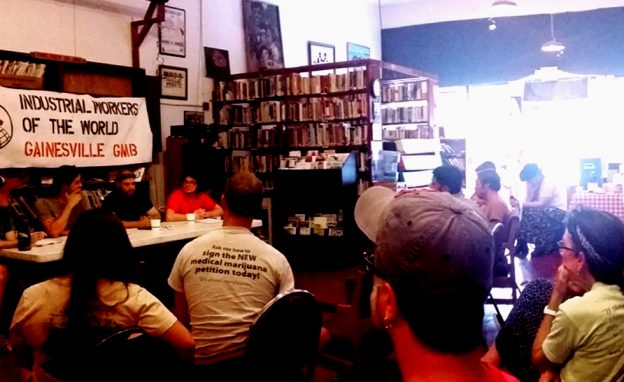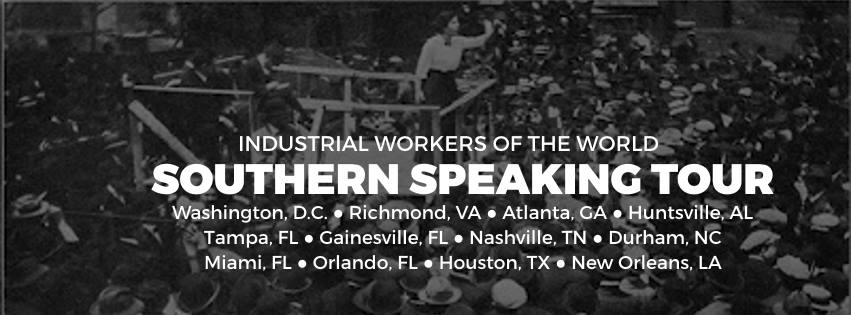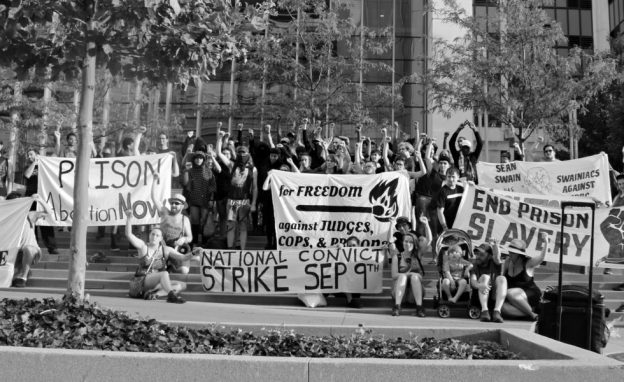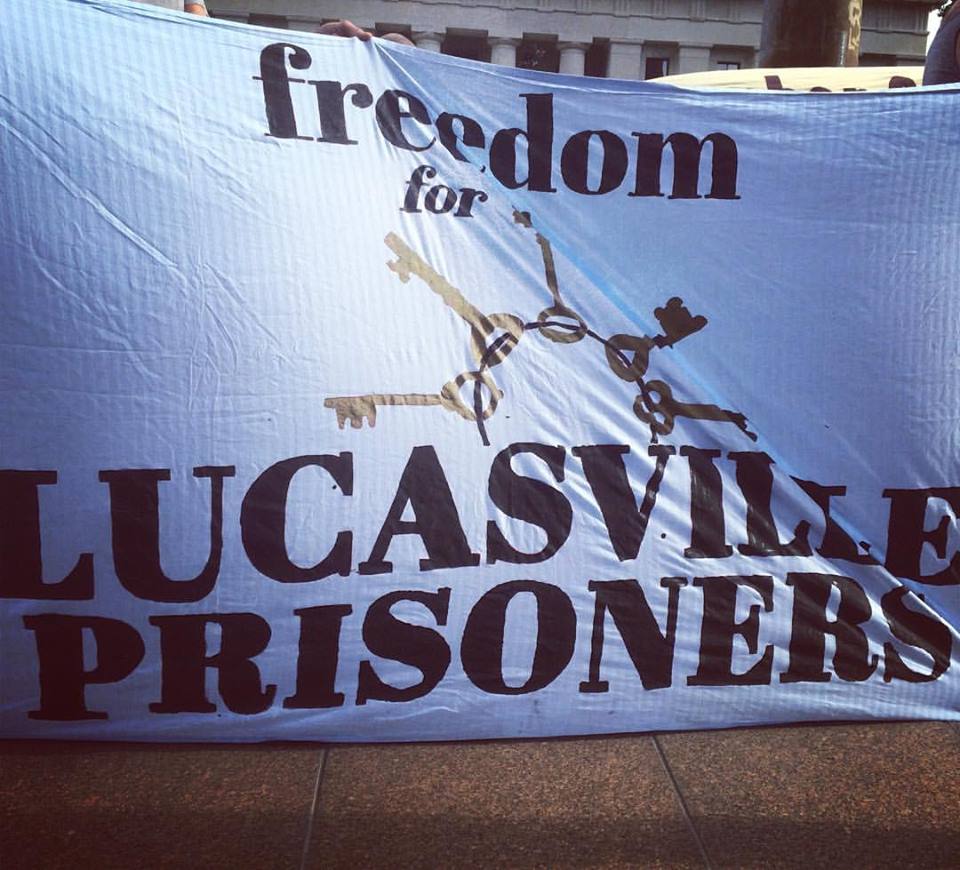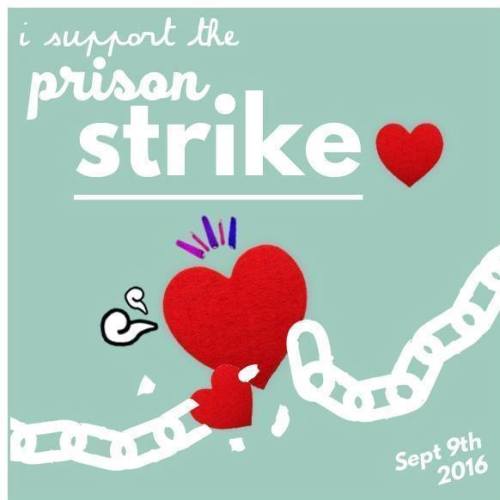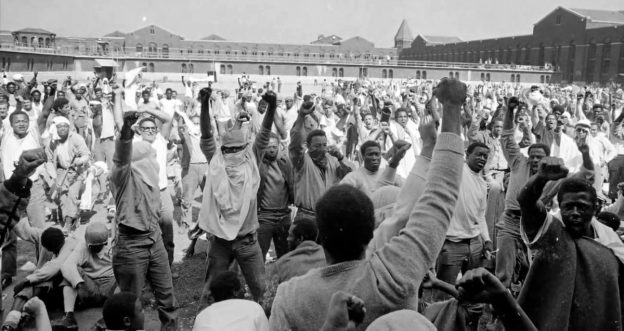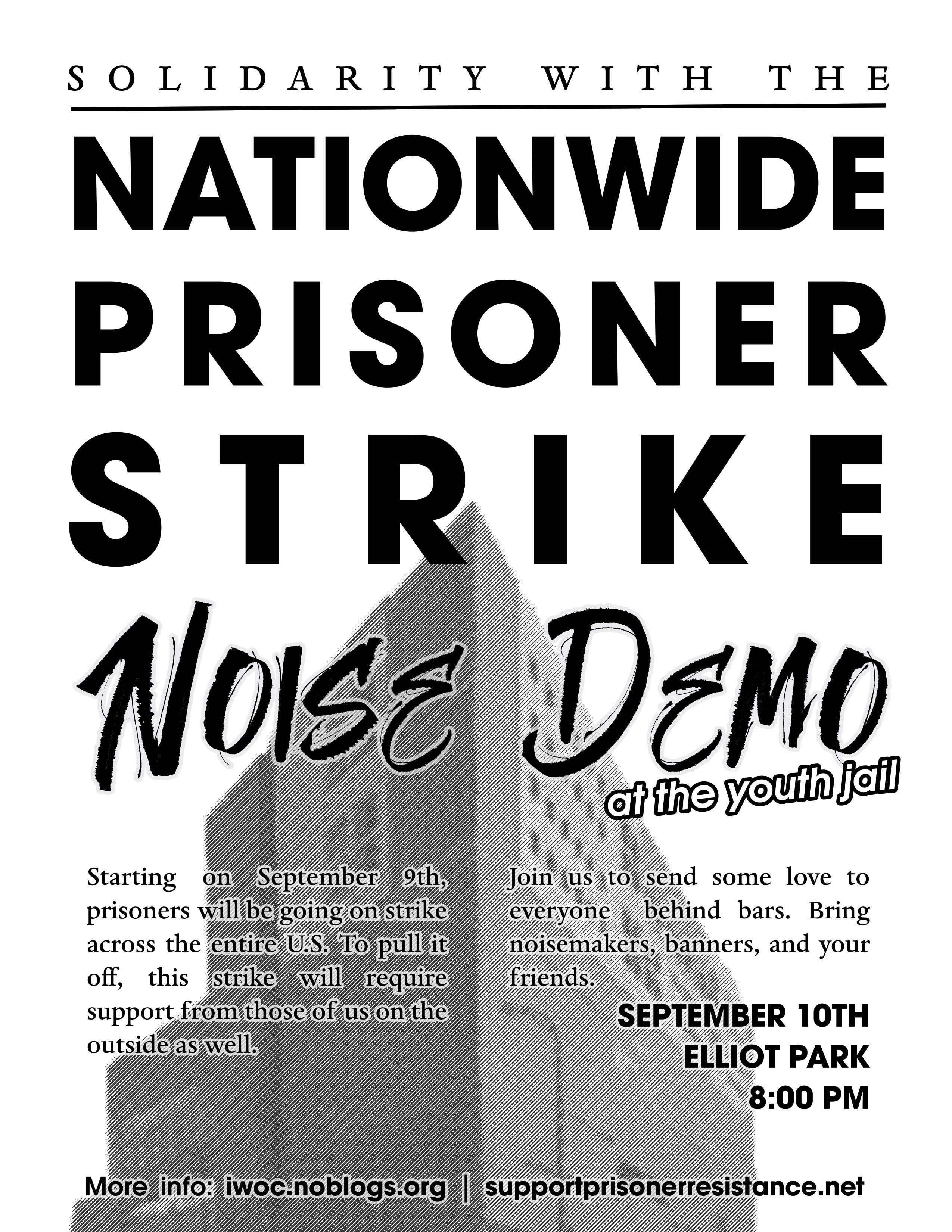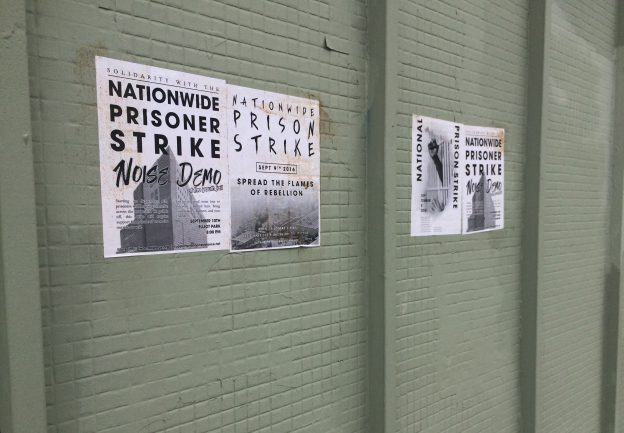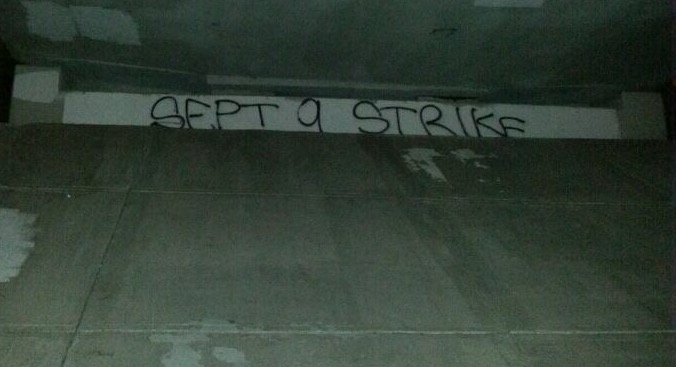Source: PDXABC
UAW Local 4123: Why We Are Endorsing the September 9 Nationwide Prison Strike
Dear fellow workers,
Our union, which represents more than 10,000 academic student employees including Teaching Associates, and Graduate Assistants across the California State University system, formally endorses the nationally coordinated prisoner work stoppage set for September 9, 2016.
UAW Local 4123 is endorsing the September 9 strike because we see our local’s struggles against poverty-level wages, debt-financed education and workplace discrimination as intimately connected to prisoners’ “Call to Action Against Slavery in America” – in ways both patently obvious and less well-understood.
Inmates affiliated with the Free Alabama Movement, the self-organized committee created by prisoners in Alabama to reclaim basic dignities for inmates, helped put the call out following a spring strike across carceral facilities throughout the state – actions which commenced on May Day and lasted more than a week. The Incarcerated Workers Organizing Committee of the Industrial Workers of the World, the member-run syndicalist union still around after more than a century of direct action at the point of production, is assisting with organizing efforts.
UAW Local 4123 joins organizations like the National Lawyers Guild, which offered a formal endorsement of the September 9 action. In 2015, the NLG passed a resolution supporting prison abolition, committing the guild to working toward a world where prisons are obsolete and the perceived need for incarceration ceases to exist.
As both graduate students and workers in academia, we would be remiss not to recall the historical relationship between two seminal American institutions – slavery and the university.
We wouldn’t be the first to do so. Union-affiliated graduate students at Yale produced a report in 2001 documenting their university’s historical relation to slavery, from the first professorship at the college having been endowed by a slave trader in the mid-18th century, to the concerted effort of Yale leaders in 1831 to thwart inclusion of African Americans in higher education in New Haven. Professor of History at MIT and Bard Prison Initiative fellow Craig Wilder later published “Ebony & Ivy: Race, Slavery, and the Troubled History of America’s Universities,” which showed how the tripling of colleges in colonial America between 1746 and 1769 coincided with the height of the slave trade and expansion of the Atlantic economy that ensued as a result of chattel labor. (Cite motherjones article)
As the authors of the “Call to Action” for the 9/9 work stoppage note, the 13th amendment to the US Constitution, which is assumed to have abolished slavery when it was ratified in 1865, also “maintains a continued exception for continued slavery in US prisons.” The amendment prohibits slavery “except as a punishment for crime whereof the party shall have been duly convicted,” leaving slave-like labor permissible in American prisons.
In her 2005 book, “Abolition Democracy,” Davis echoed W.E.B. DuBois’ insight that while slavery formally ended after the American Civil War, it nevertheless persisted in modified form. The institutions necessary to enable freed slaves democratized access to the means of subsistence and to collectively empower people to make the major decisions affecting their lives were not adequately built during Reconstruction, thus allowing for new modes of enslavement to continue. Just as “abolition democracy” was needed to truly transcend slavery, Davis suggests it is likewise necessary to recover collective agency through participatory resistance movements. As union representatives for students resisting the parallel issues of being overworked, underpaid, and exploited we fully endorse the prisoners’ emancipatory proclamation – “We are not making demands or requests of our captors, we are calling ourselves to action”
Jordan Camp, author of “Incarcerating the Crisis: Freedom Struggles and the Rise of the Neoliberal State,” documents how a series of working class urban uprisings in the 1960s, as well as events like Attica prison rebellion, became fodder for organized fear. These moral panics were then used to justify the gutting of the social wage and evisceration of publicly funded goods and services. Money got funneled into the expansion of policing and prisons instead.
In California, the ideological architect – or mouthpiece, at any rate – of this new paradigm, Ronald Reagan, who would go on to champion “law and order” as president, first took aim at his state’s university students after being elected governor in 1966. Vowing to “clean up that mess at Berkeley,” and to “throw the bums off welfare” – presumably referring to California university students, who previously had near-free access to higher education – Reagan’s rhetoric conceptually linked purportedly privileged college students engaging in activism and organizing to criminal social upheaval.
Before Reagan took presidential office, his fellow Californian Richard Nixon set the stage by using race-based vilification in the early 1970s to peg poor people, predominantly of color, as a source of disorder and drain on social budgets so he could generate consent for the slashing of the social safety. As Camp suggests in his book, the build-up of mass incarceration can be traced in part to the era Nixon and Reagan ushered in when they offered middle America an insidious solution to the social crisis and economic downturn of the period by suggesting the problem of rebellion could be eliminated by defunding its supposed causes – free or affordable education and New Deal-style social provisions – and through aggressive policing and prisons. Put bluntly, the policies and ideologies that led to mass incarceration parallel those that have essentially eradicated affordable education and ushered in the era of student labor exploitation.
In 1978, California passed Prop 13, which lessened the state’s capacity to raise revenues through property taxes that could go to supporting public education. Tuition and fees started increasing, as did the number of prisons and hence prisoners in the Golden State, which further decreased available funds for California colleges and universities. In her book “Golden Gulag: Prisons, Surplus, Crisis, and Opposition in Globalizing California,” Ruth Wilson Gilmore recounts how the state set about the biggest prison-constructing project in world history, increasing California’s incarcerated population some 500 percent between the early 1980s and 2000. The West Coast trend caught on, and the nationwide incarcerated population expanded from about 500,000 in 1980 to just under two million by the turn of the millennium. As of 2014, California was second only to Texas in terms of the sheer number of people behind bars within the United States.
In addition to being home to the massive rolling hunger strikes undertaken by prisoners in recent years, including the 2011 solidarity actions against conditions in Pelican Bay, the state’s first super-maximum security prison, California has also witnessed a resurgence in student and unionized academic worker militancy. We saw a series of student occupations in response to an impending 32 percent tuition and fee increase across the UC system in 2009. In 2014, our comrades with UAW Local 2865 staged a strategic two-day strike over working conditions for graduate student workers and other academic employees across UC campuses.
We therefore see the elimination of incarceration and exploitation as intertwined. Because those of us with UAW Local 4123 understand our different struggles as inextricably linked, we endorse the September 9 coordinated nationwide prisoner work stoppage and encourage others to join us in supporting those on the inside in the fight for real abolition.
In Solidarity,
UAW 4123 Local Executive Board

